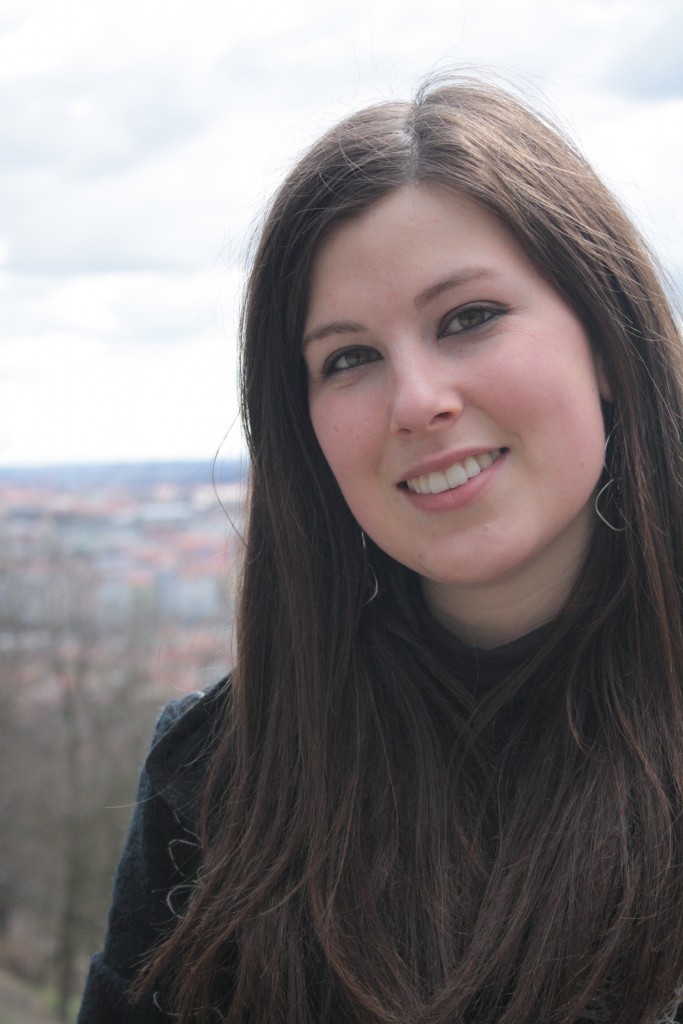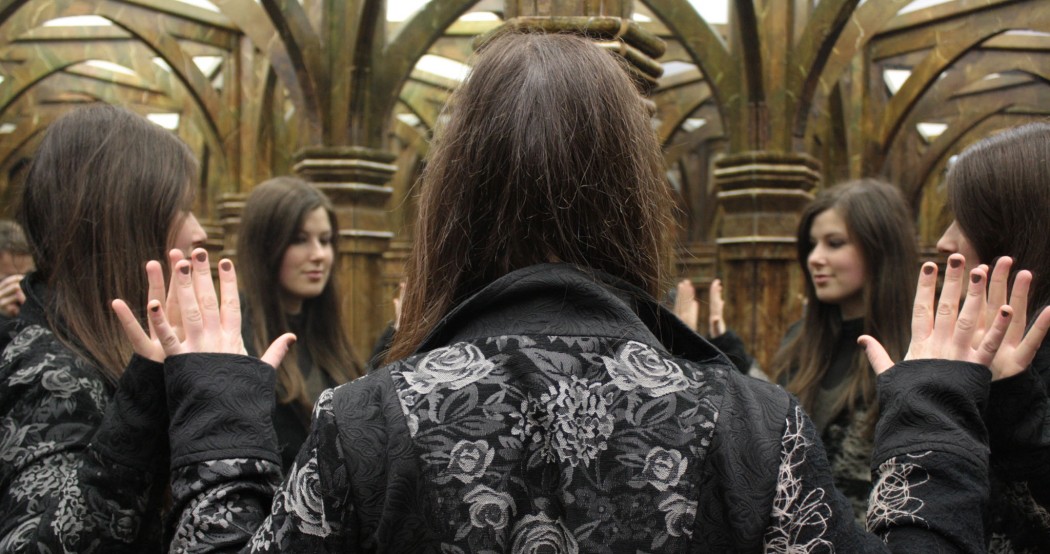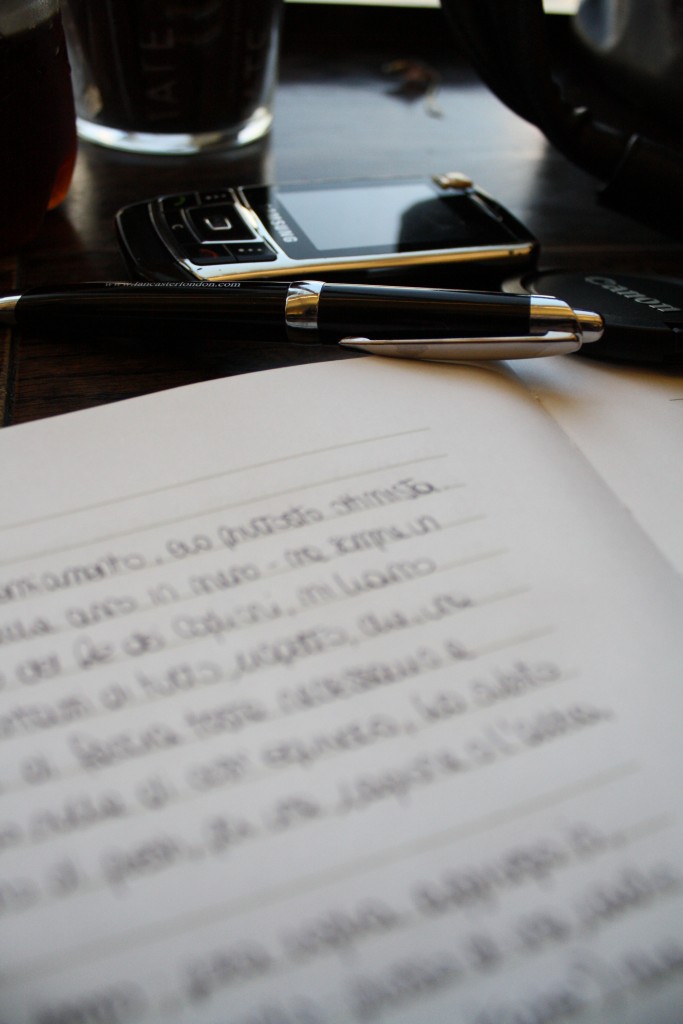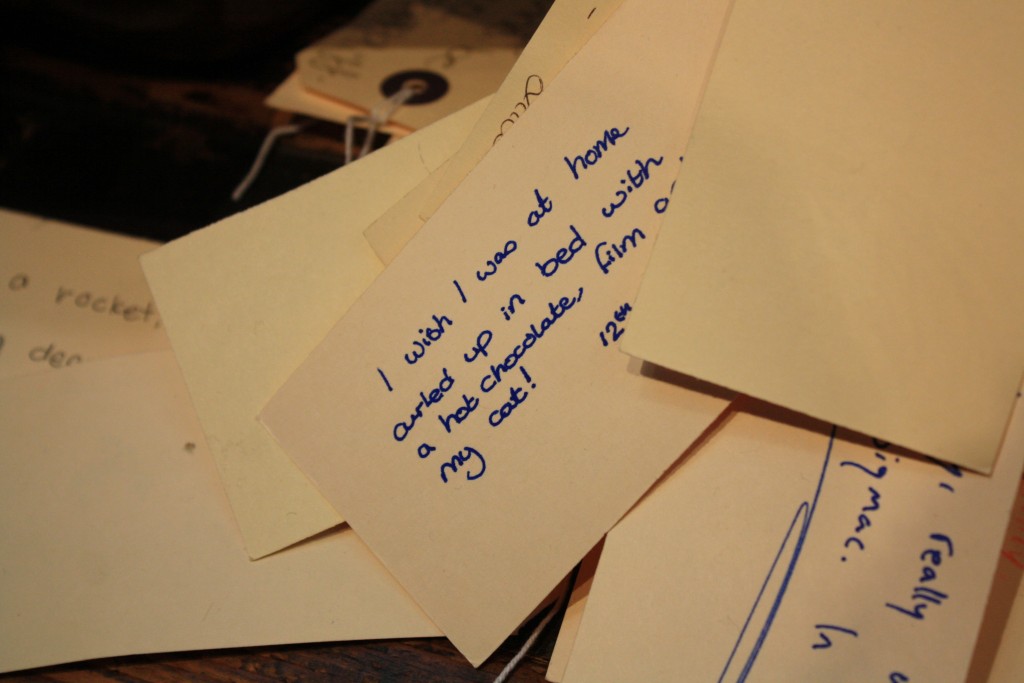I hope you’ve all had a good day and are ready to sit down with a cuppa and enjoy a new and rather interesting Career Inspiration interview. For those of you who’re new to Career Inspiration, the aim is to help people looking for career ideas, a career change or simply an insight into what others do.
It’s very hard to know what you want to do in life and I’ve always loved finding out about what others do and the journey they took to get there. Today I’m talking with a very focused and dedicated business woman who made the move from Italy to the UK to pursue her career. I hope you enjoy today’s interview with Federica, a Project Manager.

What did you study at university and has it been beneficial to your career path?
Back in Italy, I did a bachelor’s degree in Business Administration. I felt it would open up many “safer” job opportunities than what my heart was set on doing (literary translation)…but once I got my degree, I realised I had no drive to pursue any of the career paths I’d studied for. That’s when I moved to London, and did my MA in Creative and Cultural Industries.
It’s hard to say whether my studies helped my career. In the UK, employers value degrees much less than in Italy; when it came to looking for my first job, I found it difficult to get noticed by employers, as work experience in the UK was far higher in their list of priorities than education. Still, going to uni equipped me with many transferable skills I otherwise wouldn’t have. By living away from home and studying abroad, I learnt to adapt to different people and situations quickly, and step out of my comfort zone to solve problems independently. Even studying subjects I didn’t like played an important part: it taught me to exercise patience and persistence, and accept that things I don’t enjoy doing are sometimes just as important to the end result as ones I like to spend time on.
Why did you decide to move from Italy to London?
I’ve been dreaming to live in London since the first time I visited. I was 13, on holiday with my mum, and fell in love with the city at first sight. It was one of those strong feelings you develop when you’re a hot-blooded teenager, and never really let go. I made the big move after leaving university in Italy, when I realised that my country offered no opportunities I could pursue in the creative industries. People sometimes ask me if it was a hard decision, and in truth, it wasn’t; boarding that plane was the easiest decision I ever made. The hardest part was (and still is) facing the challenges and setbacks that paved the way to building a stable life in this city. Even so, I wouldn’t live anywhere else in the world.
How did you find yourself working as a project manager, was it a career you’d always planned on?
The short answer is no. When I left school and started uni, all I wanted was a secure job that allowed me to follow my dream of being a fiction writer in my spare time. Then I realised that writing could be a career in itself, and came to London to pursue it. The plan was finishing my studies here and then looking for a job in publishing…but that job never happened.
My first job in London was in administration and HR. It taught me a lot and got me building an interest in learning and development, which I thought would be the natural next step in my career. By the time I left, however, I was just as eager to become a training professional, than I was to take on a completely different challenge. When I was offered a project management job that involved working with clients of all sizes and industries all over the country, I took it with both hands!
Please tell us about your current role as a project manager.
It’s not your usual project management role – at least, not if you think of the project managers who build complicated Excel spreadsheets, set budgets, and track costs down to the last penny. The company I work in builds employee engagement platforms for organisations of all sizes; think websites that include staff benefits, culture and values, HR information, and anything businesses want to share with their employees to make their company a better place to work. My contacts are HR people, and the end users are employees, so my previous experience in HR comes in quite handy.
My job is split in two parts: I manage new projects from kick off to launch (think meeting clients to understand their needs, planning all the steps we need to take to implement the new benefits they want, coordinating the resources I need internally, and the ever important challenge of managing everyone’s expectations) and set up the actual platform (designing the visuals of the sites, organising the content, and sometimes helping out with the employee communications the client will roll out to make everyone aware of what’s coming).
What do you enjoy most about working as a project manager?
The diversity. I used to laugh at the adverts that stated “apply if you want a job where no two days are the same”, but that’s exactly what my role is like. No two projects I work on are the same, and I learn something new from each: I discover ways of doing business I’d never come across before, find out different ways of communicating with different people, and get to build on skills I’d developed through personal interest, but had never been able to use at work before. If one year ago you’d told me that I was about to start a job that valued the coding and design basics I learnt in my bedroom as a teenager, and push me to expand my knowledge further, I’d have thought you were on some kind of exotic drug!
What has been the biggest challenge in your career?
Realising that writing might not be what I’d end up doing for a living, and accepting that building a stable life for myself and my loved ones also meant reaching a compromise between my dreams and the demands of everyday life. I still have days when I feel I’ve let myself down – especially when I realise that many people who have achieved things I’ve been dreaming about for years are much younger than I was when I started pursuing those dreams. I still fear I’ll end up looking back on my life, aged 40 or 50, and realise I have nothing to show for myself. But even this crippling fear teaches me something: looking for meaning in what I do, and making a change in my life if I can’t find any. Forgetting how fortunate I am to live the life I lead is all too easy, and I’ve gotten much better, over time, at catching myself before I fall into that trap.
What is a typical workday like?
There’s no typical workday in my role, just like there’s no typical project. I spend two or three days a week out of the office, meeting clients who want to start a new project, or visiting potential clients who want to meet the team they’d work with if they came on board. When I’m sitting at my desk, you might find me designing visuals or writing content for a new platform – whether it’s a new one the client has requested, or my vision for the solution we can put in place for a prospective client. Time in the office also involves having internal team meetings, to catch up and move forward with the projects I’m working on.
Has your blog, Whatever Gets You Through The Day, played a part in your career?
Much to my surprise, yes! Shortly after I joined, I discovered that my company was building an internal social media team, bringing together people who were keen to shape the business’s social media strategy, and learn best practices together along the way. Despite having been in my job less than two months, and still feeling a bit awkward around my new colleagues, I applied; showing how social media helped me build an audience for my blog and make new friends got me a place into the team. To date, I’ve written a few articles for my company’s blog, and even been in charge of organising a global social media campaign for our offices worldwide. Besides, I’m the office foodie, so it’s not hard to get my colleagues to visit the cafes I fancy when we’re in between meetings in London. All I need to do is promise that the food is good and there will be wi-fi!
What transferable skills did you pick up from blogging to help land your current job?
I’m naturally the “wallflower” type, happy to observe the world around me and utterly uncomfortable with being the centre of attention (at my worst, I’m the female incarnation of the Socially Awkward Penguin!). Blogging made me more confident. Getting yourself out there, in a brand new world where everyone else has more connections and a stronger reputation than you, is really hard in the beginning – but that’s the only way forward if you want to make the most of the opportunities a blog can throw your way.
A job that involves having the confidence to steer people in the direction I have in mind, and sometimes say a firm “no” to clients and colleagues, might not be the most obvious choice for someone with my personality type. And yet, if I’m able to present a proposal to a worldwide advertising company’s Financial Director, it’s all because of that first time I went to a blogging event on my own and left with lots of new friends.
What keeps you motivated?
The bigger picture. It might sound silly, as I don’t know what my future life or career looks like; I do know, though, that if I keep working hard to get better at the things I’m most passionate about, the opportunity to use what I’m learning to fulfil my dreams can’t be too far.
What advice would you give to others thinking of a career as a project manager?
Learn to not take anything personally. Problems are inevitable: things will go wrong, and you will meet clients, colleagues or bosses who are determined to give you a hard time for it. It’s always much more about them than it is about you, though; most of the time, it isn’t about you at all. Let go of snarky comments and frowning faces quickly, and focus on working on what’s in your power: doing the best job you can, and getting everything that’s under your control absolutely right.
Are there any books, websites or podcasts you’d suggest to people interested in project management?
I won’t go into technical training: the tools and software you’ll use within your projects will depend a lot on the type of work you do and company you work in. Most of the time, how much you know when you first start doesn’t matter much, as the most useful things will be the ones you learn on the job (although some Excel knowledge won’t hurt you in pretty much any office-based role. Take the advice from one who refused to learn how to make a pivot table for years!). The three things I’m recommending are much easier to engage with in your spare time:
- Read Seth Godin’s blog (if you aren’t already). You’ll find invaluable advice on how to handle situations and people like a professional, and insights on innovation and the mindset to achieve it.
- Watch Simon Sinek’s TED Talk “Start With Why”. Every project you’ll work on begins with a vision – and the better you can communicate it to others, the better placed you’ll be for success. I’m also planning to read the “Start With Why” book, which I’ve heard lots of good things about.
- Follow the Tumblr blog Clients From Hell. It’s a great medicine to recover from a bad day, and have a big fat laugh in the face of the adversities work throws at you. It might not be the most professional recommendation you’ll receive, but it makes for a good time!
What direction do you hope to take your career in 2015?
I’d love to get even more involved in the creative side of my job, learning as much as I can about design and coding…and see where this takes me, both in and outside of work. That’s something I’ve been interested in for a long time, and since I’m planning to redesign my blog layout this year, this feels like the right time to make the most of the opportunities I have through my projects and training at work.
Thank you so much to Federica for taking the time to be a part of Career Inspiration. I hope you’ve all found the interview interesting and useful, I certainly have. I personally know exactly what Federica means in regards to the confidence that blogging has given her. I too headed off to events and managed to chat to new people and this gave me an extra boost in my personal and career life. I think it’s very good to push yourself out of your comfort zone when you can.
Federica is very passionate in everything she does. I have every bit of confidence that she’s going to be very successful. Federica, let me buy you a coffee next time I’m in London.



